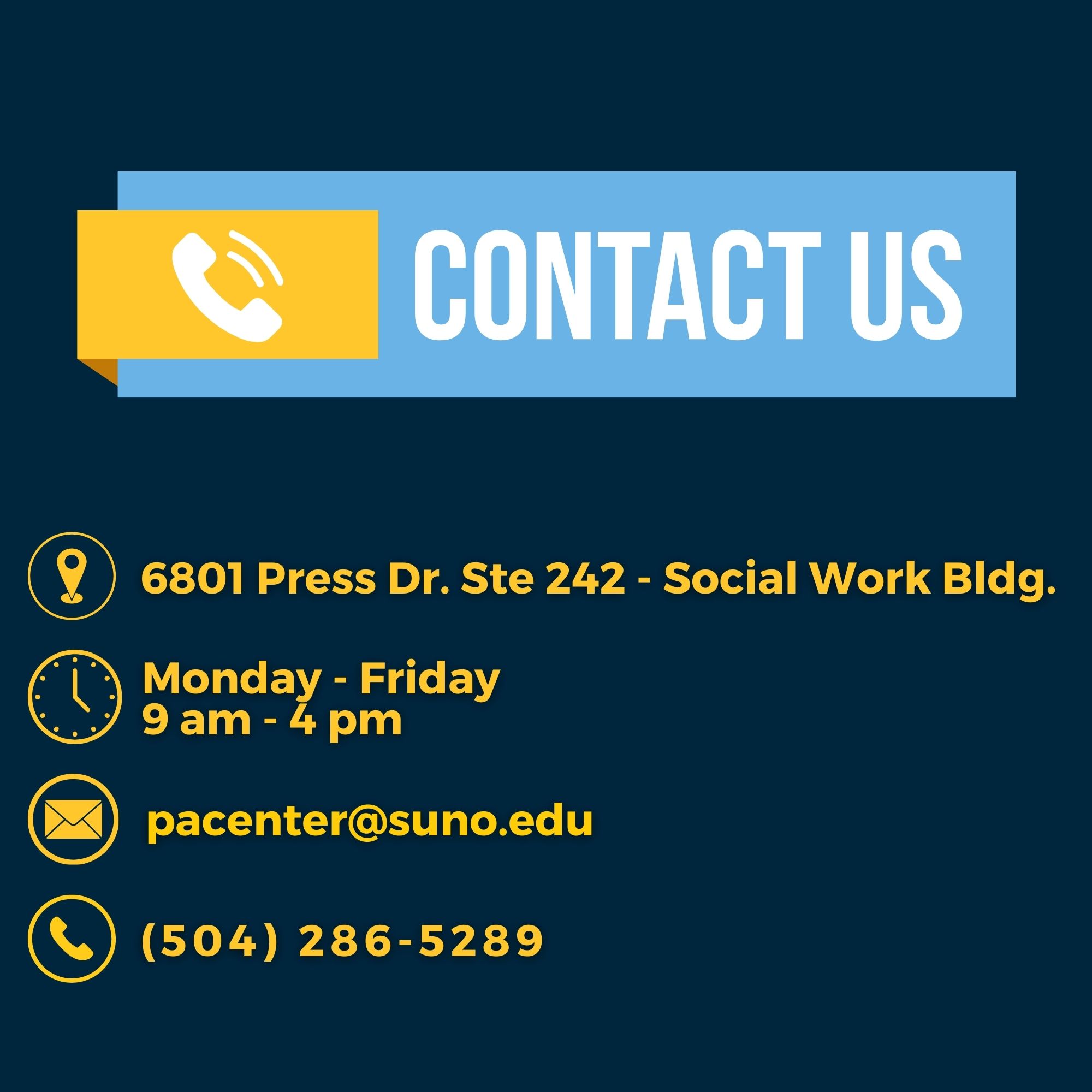Frequently Asked Questions (FAQ's)

Frequently Asked Questions (FAQ's)
Explore our FAQs to find answers to common questions and gain valuable insights into various aspects of our services and resources. Please contact the advocate at (504) 286-5289 for additional information.
I'm not sure what happened to me is a crime or how to describe it. Can I still talk to the advocate?
Absolutely! The advocate will use language you're comfortable with when talking about what happened. Regardless of criminal law or your decision to report, the advocate is here to support you
What is an injunction?
An injunction is Louisiana’s legal term for a restraining order. Injunctions are given through the civil court process, not a criminal court. However, violating an injunction is a criminal offense.
The advocate can help you file for an injunction, go with you to court hearings, and refer you for free legal representation. The Center for Prevention & Advocacy can also assist with filing.
In addition to an injunction, you may be interested in a no-contact order through the university. These orders can also be given if you don't have an injunction. Please contact the Center for Prevention & Advocacy with any questions.
Why would I call the Center for Prevention & Advocacy (CPA)?
Here is what we know from serving students. Whether one is the direct victim of a crime, the roommate, the best friend, the boyfriend called immediately after victimization, or the witness to a crime, there is fallout that needs to be addressed, questions to be answered, decisions to be made, and short- and long-term ongoing needs to be met -- all related to the initial victimization. So, whether you're looking at missed classes or classwork; emergency needs; anticipated disruption that may occur due to involvement in the court process, or you need resources to deal with the fallout, the Center for Prevention & Advocacy staff is trained to help.
Is the Center for Prevention & Advocacy a counseling program?
No. The Center for Prevention & Advocacy staff is not part of the SUNO Counseling Center (504-286-5127). While counseling is a valuable component in the recovery process for a victim, the focus of the Center for Prevention & Advocacy is to look at the overall picture of the victim's needs, providing or obtaining information, serving as the liaison so that the student can retain privacy in all campus-related interventions (such as with professors for missed classes), and meeting the distinct needs relating to the crime itself or its impact.
Will the Center for Prevention & Advocacy help me if I don't want to report to law enforcement?
Absolutely! We realize that not all victims choose to report. In fact, college students are less likely than non-students to report violence committed against them. Only 34% of all serious victimizations are reported (Department of Justice). That leaves 66% who did not file an official police report. We respect that choice. As advocates, our role is to ensure that you have information that can help you make choices based on your needs, provide intervention that is discreet and does not identify information you wish to keep private and offer resources that specifically address your immediate and long-term needs.
What if I am a victim of a crime that occurs off campus, out-of-state, or during spring break? Can I still get help from the Center for Prevention & Advocacy?
According to Department of Justice reports on college students and crime, most crimes committed against college students occur off campus, and that holds true even for those who live on campus. If you become a victim of a crime, no matter where the crime occurs on or off campus, our services are available free of charge to all currently enrolled students. The Center for Prevention & Advocacy has an established network on the local, state, and national levels.
I've heard that the Center for Prevention & Advocacy only deals with sexual assault. Is that true?
Crimes against college students include robbery, physical assault, identity theft, kidnapping, carjacking, burglary, relationship violence, and domestic violence -- the list is as varied as the types of students who become victims and the Center for Prevention & Advocacy works with them all. The program was started at the Southern University at New Orleans because we know that the college-age population, both males and females, are vulnerable to any type of crime.
How can I reach the Center for Prevention & Advocacy?

